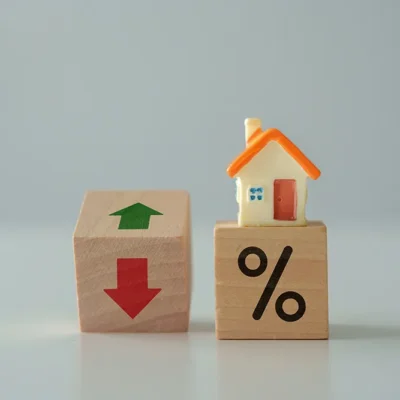Balances on credit cards have increased by nearly 10% and it’s beginning to have a knock-on effect on mortgage applications.
 This is the warning being issued today by mortgage brokers after data from UK banks revealed the extent to which people are in debt as a result of the cost-of-living crisis.
This is the warning being issued today by mortgage brokers after data from UK banks revealed the extent to which people are in debt as a result of the cost-of-living crisis.
UK Finance, the banking trade body, said outstanding balances on credit card accounts has grown by 9.9% over the year to March 2024.
It reported 49.8% of outstanding credit card balances had incurred interest.
With the cost of living having soared in recent years and interest rates at a 16-year high it’s no wonder so many people are turning to credit cards as a means to keep their heads above water financially.
Indeed, mortgage brokers have noticed a rise in the number of clients with higher credit card debt and are concerned it could impact mortgage success for many.
Justin Moy, managing director at Chelmsford-based EHF Mortgages, speaking via the Newspage Agency, said: “Increasing balances on credit cards is a huge problem. It’s been made worse by higher interest rates and the cost-of-living crisis. It’s fuelled by the use of credit cards to cover day-to-day household bills and is made worse by the lack of balance-surfing, with more borrowers having to suffer rates in excess of 25% per year rather than the 0% options enjoyed for years.
“With less appetite from mortgage lenders to consolidate unsecured debt, the spiral of expensive card borrowing is not abating while mortgage rates remain high.”
Meanwhile, Dariusz Karpowicz, director at Doncaster-based Albion Financial Advice, also speaking to Newspage, explained higher outstanding balances on credit cards can negatively affect credit scores and overall affordability assessments.
“We’re seeing more clients struggling to pay down their credit card debt, which complicates their mortgage applications,” he added.
Top credit card tips for would-be mortgage borrowers
The advice to anyone with credit card debt who is currently looking at taking out a mortgage is to prioritise paying down the debt.
It’s also a good idea to check your credit score and find ways to help improve this going forward.
Kara Gammell, personal finance expert at MoneySuperMarket, had some tips on how to do this.
“Get on the electoral register,” she advised, “being registered to vote could improve your credit rating. It’s quick and easy to register through the gov.uk website.”
She also urged credit card users to set up direct debits to make their repayments to ensure they never miss a payment.
Keeping spending to a minimum is also essential for anyone repaying debt.
Gammell added: “Use credit with care – aim to keep your credit card spending well within your available credit limit and try to avoid having too many card accounts.
“Lenders may think you’re too reliant on credit if you’re borrowing up to your limit every month. Check the interest rates on your cards and loans – switch where possible to get a better deal and a lower rate, including 0% interest deals, which could help you to pay off debt faster.”
Gammell said people could try using MoneySuperMarket’s Credit Monitor to check their credit score without affecting their rating. It also offers personalised tips on how to improve your score.





